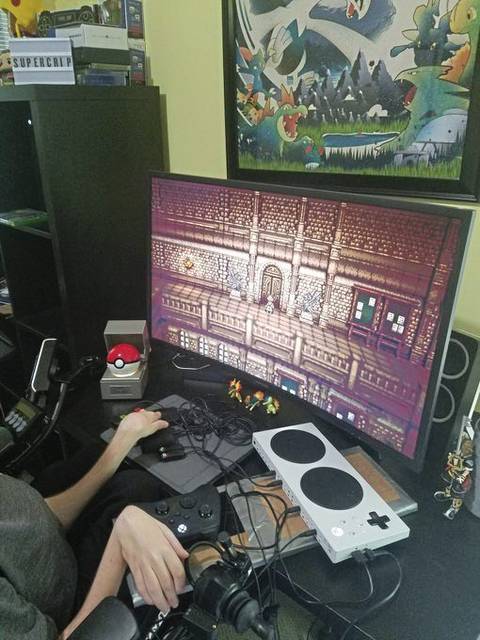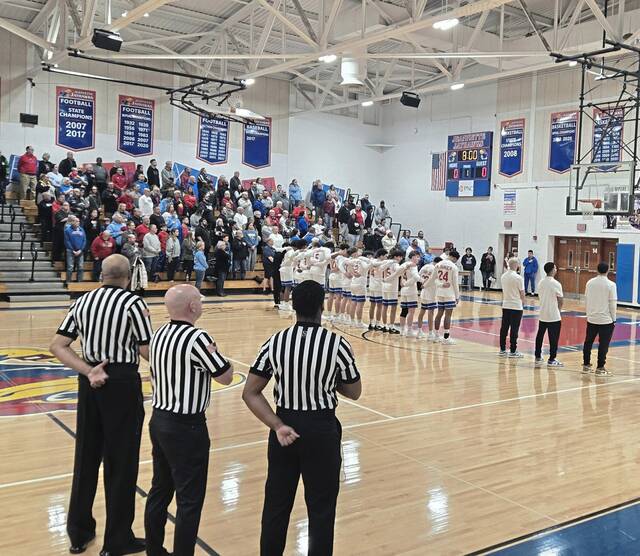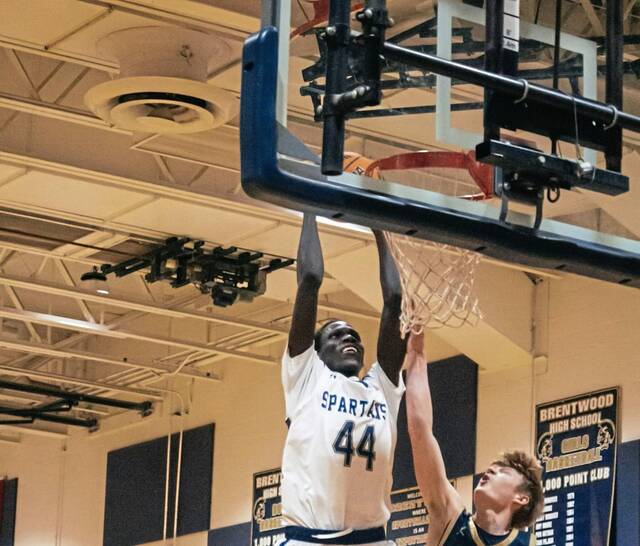Jefferson Hills resident Grant Stoner found a way to turn his passion for video gaming into a platform to highlight and improve accessibility in video gaming.
The 27-year-old has a rare disease called Type II spinal muscular atrophy (SMA), a progressive neuromuscular disease. The disease causes difficulty to perform certain functions such as breathing, swallowing and walking, Stoner said. He uses a wheelchair to move around.
He was diagnosed at 13 months old.
“It was difficult in the sense that I wasn’t able to do much as a young child so I wasn’t really able to go out with friends and go to parks and playgrounds and things of that nature,” Stoner said.
Coping with the disease was not an issue for Stoner, who said he had a great support system growing up.
“I never really felt left out or upset about my inability to do certain activities. I was always treated as an equal both by my peers and my family,” he said.
SMA affects an estimated 1 in 10,000 babies in the U.S., according to Cure SMA.
In January, Grant was able to finally receive treatment for the disease, after the U.S. Food and Drug Administration approved in late 2020 the first and only at-home treatment called Evrysdi for SMA for adults and children two months and older.
The treatment helps increase his motor function skills, so that he is able to do his job and leisurely play video games. Stoner has noticed improvements since taking the treatment. He said he is able to sit up straighter, play games for a longer duration and has more energy throughout the day.
“As for restoring muscle strength, I haven’t noticed it yet, but I have only been taking it since January this year,” he said.
The freelance video game journalist dedicates his time to reviewing video games and discussing how accessible they are for gamers who have disabilities. He has written for a number of publications including IGN, The Washington Post and WIRED Magazine.
Stoner aims to write one article per week but hopes to get a full-time position soon.
During his time at the Duquesne Duke — Duquesne University’s student newspaper — from 2012-2019, Stoner did not want to pigeonhole himself into a box with his work until a friend he worked with there encouraged him to do it. His first article on accessibility in gaming was a review on the Nintendo Switch.
”And it turned out to be a really good decision because now that’s what I get paid for,” Stoner said.
While gaming, Stoner is looking at if the game requires rapid movements or rapid button mashing, the difficulty of the game and the options included.
“Those are always factors that I’m always looking at when I review a game and also when I play a game for fun,” he said.
It would be Stoner’s time at “Can I Play That?” where he would see the impact of his work. The platform is the largest accessibility site in the gaming industry from a journalism perspective, Stoner said.
He spent a year and half with the site before leaving in January of this year to pursue more journalism opportunities. He saw the site go from 600 views per month to 10,000 views a month before leaving. A majority of those views are from developers, Stoner said.
“They’ll actively read our reviews or features to see what we need,” he said.
His review on “Metal Gear Solid V: The Phantom Pain” on Xbox prompted developers to make adjustments to its gameplay after Stoner said it causes a lot of fatigue during long fights to continuously tap the button to shoot and aim weapons, rather than one tap of the button to shoot.
“Within two weeks, one of the lead’s developer’s found my Twitter and was like, ‘Hey, we fixed it! Can you review it again?’ and it worked,” Stoner said.
Raising awareness for accessibility in gaming is nothing new as it has been an ongoing process, Stoner said.
“There’s been people before me and there’s gonna be people after me if I leave journalism,” he said.
Stoner said some studios and game developers are making strides to make gaming more accessible. Microsoft and Sony have created initiatives to have dedicated teams to design features and gameplay, and regularly hire consultants that have disabilities to test their games and give feedback.
Highlighting this topic is important to Stoner because stripping away accessibility features and options leaves out gamers with disabilities.
“You’re shutting out a significant portion of the world’s population from enjoying something that’s relatively harmless and entertaining,” he said.
Although the issue will not be solved overnight, Grant is grateful for the impact he has been able to create through his work.
“It is very surreal of the fact knowing that my reviews, developers are using the information given to create experiences that allow a lot of disabled people to enjoy gaming,” he said.















